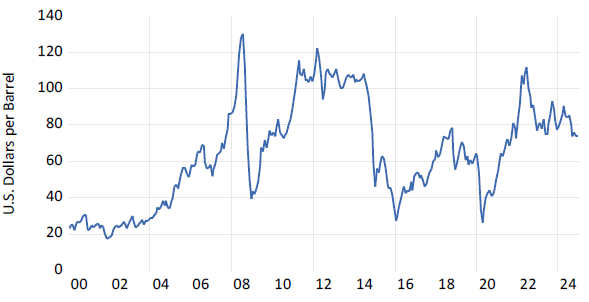| Author Name | Willem THORBECKE (Senior Fellow, RIETI) |
|---|---|
| Research Project | Economic Shocks, the Japanese and World Economies, and Possible Policy Responses |
| Download / Links |
This Non Technical Summary does not constitute part of the above-captioned Discussion Paper but has been prepared for the purpose of providing a bold outline of the paper, based on findings from the analysis for the paper and focusing primarily on their implications for policy. For details of the analysis, read the captioned Discussion Paper. Views expressed in this Non Technical Summary are solely those of the individual author(s), and do not necessarily represent the views of the Research Institute of Economy, Trade and Industry (RIETI).
Fossil fuels dominate Japan and South Korea’s energy supplies. In Japan 85% of energy came from fossil fuels in 2023 and in Korea 79% came from fossil fuels. Oil was the largest source, with 38% of energy supply in Japan and 37% in Korea coming from oil. Both Japan and Korea have pledged to cut greenhouse gas emissions and reach carbon neutrality by 2050.
Both countries also wrestle with energy security. In Japan 99.6% of crude oil supply came from imports in 2023 and in Korea 98.9% came from imports. As Figure 1 shows, oil prices are volatile.
This discussion paper investigates how oil prices impact sectoral stock returns. Black (1987) reported that sectoral changes in stock prices presage sectoral changes in output, profits, or investment. Examining how oil prices impact sectoral stock returns can thus shed light on how they will impact sectoral sales, earnings, and investment.
This paper thus examines the response of stock returns to oil price changes to shed light on how oil prices impact economic activity across sectors in Japan and Korea. It has been revised to include results from Thorbecke (2024) and additional policy implications. The results indicate that many sectors in both countries are exposed to oil price changes.
The evidence for Japan indicates that oil price increases driven by global aggregate demand shocks benefit Japanese sectors that compete in world markets such as machinery, electronic components, and consumer electronics. The increase in aggregate demand raises demand for goods produced by these sectors. On the other hand, aggregate demand-driven oil price increases harm sectors oriented towards the domestic market such as railroads, hotels, restaurants, and delivery services. Oil price increases driven by oil supply factors benefit several Japanese industrial firms and harm sectors such as construction and tires that depend on oil and energy.
The evidence for Korea indicates that oil price increases driven by global aggregate demand shocks benefit Korean sectors that compete in world markets such as iron and steel, shipbuilding, and commercial vehicles. The results also indicate that oil price increases, whether driven by aggregate demand or by supply side factors harm sectors such as airlines, drug and grocery stores, consumer staples, food producers, industrial transportation, and cosmetics.
Japan in 2025 approved a plan to reduce greenhouse gas emissions by 63% by 2035 and by 73% by 2040 relative to 2013 levels. The plan involves raising solar energy sources from 9.8% in 2023 to between 22% and 29% in 2040, raising nuclear power sources from 8.5% to 20%, and reducing fossil fuel sources from over 80% to between 30% and 40%. Korea plans to decrease greenhouse gas emissions by 40% by 2030 compared to 2018 levels. Because so many firms are exposed to oil price changes, Japan and Korea should be more ambitious in switching from fossil fuels to renewables. Investing in technologies to improve wind, hydro, and solar power would not only help them to reach their climate goals but also reduce firms’ exposures to oil price changes. Some examples of steps that Japan and Korea can take include:
- i) Increasing trade in renewable energy with Northeast Asian neighbors;
- ii) Strengthening the infrastructure for receiving, storing, and distributing power produced by their neighbors;
- iii) Overcoming the lack of room for solar farms in Japan and Korea by researching and employing perovskite solar cells;
- iv) Encouraging airlines to reduce their carbon footprint by using sustainable aviation fuel, reorganizing flight plans, releasing the landing gear later, and employing fuel efficient planes;
Tariffs, trade wars, and geopolitical shocks will continue disrupting oil markets. The findings in this paper indicate that the resulting oil price changes will whipsaw the economy. Governments should respond by expediting the shift to renewable energy sources.

- Reference(s)
-
- Black, F., 1987. Business Cycles and Equilibrium. New York: Basil Blackwell.
- Thorbecke, W. 2024. How Oil Prices Impact the Indonesian and South Korean Economies: Evidence from the stock market. RIETI Discussion Paper 24-E-070.

